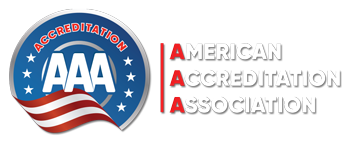Why School Accreditation is Important?
In order to establish whether a college or university or a particular program meets or surpasses predetermined educational criteria, accreditation is performed. As a teacher, attending an approved college guarantees that you will obtain a quality education that will help you grow your career and improve the education of your students. You may also have difficulties in obtaining certification as a teacher if you attend an unaccredited college.
Colleges and Programs with Accreditation of Various Sorts
Accreditation for teacher preparation programs is available on two levels: regional and national. Many regionally accredited universities will accept credits from nationally accredited colleges, however not all regionally approved graduate programs will take all nationally authorized credits. Regional and national accreditation agencies are recognized by the U.S. Department of Education for financial aid.
Accrediting Organizations at the Federal and State Levels
Private, non-governmental organizations, such as accreditation boards, are tasked with conducting independent assessments of educational institutions and programs. Membership in accrediting organizations is open to anybody who meets the organization’s strict criteria for excellence. If you ask, recognized schools will reveal the name of the organization that granted them accreditation.
Attending Colleges That Are Accredited Has Advantages
Schools and programs can ask for an accreditation assessment to determine how they stack up against the competition and identify potential growth areas. If the review is successful, the organization or program is admitted to membership in the accrediting agency. Certain states may require you to have a college degree in order to use your teaching credential. Accreditation isn’t required for all programs, however, there are a number of benefits to earning your degree from an approved institution:
In order to qualify for federal and state financial aid, you must attend a school that is accredited by the Accreditation Commission for Education. To be eligible for state and federal financial aid, a college or university must be accredited by the United States Department of Education.
Graduates of authorized colleges are eligible to transfer their credits to other approved institutions to continue their education through master’s and doctorate degrees, respectively. Accredited educational institutions are the only ones that will accept credits acquired at non-accredited institutions of higher education.
Employers prefer to hire teachers who graduated from authorized teaching programs since these personnel was taught under nationally established standards for teaching education, which makes them more attractive candidates for the labor market.
Procedure for Accreditation
- Apply for accreditation by filling out the form (click here to get the application form) and sending it back to the email address: info@aaa-accreditation.org
- Once your application has been received, you will be notified by your college or university.
- Non-refundable application fee of $350 must be paid.
- Kindly submit an email to info@aaa-accreditation.org to request our self-assessment checklist.
- Your self-assessment checklist form will be allocated to a team leader and team members by the Accreditation Committee once it has been received by them. An assessment will be scheduled within 15 days of your request.
- Assessment teams that do site visits to establish whether or not accreditation standards are being met compile a report once their findings are made public.
- Decisions on final approval or denial of accreditation will be made by an accreditation committee.
- The certificate of accreditation will be issued, valid for five years.
Why Accreditation is Important?
Accreditation is crucial because of the following reasons:
- It helps establish whether or not an institution is meeting or exceeding minimum quality criteria.
- Students can use this tool to find schools that are suitable for them.
- Employers can use this information to verify the legitimacy of academic programs and whether or not a graduate is qualified. In many cases, prospective employers want to see proof that job seekers have graduated from an authorized university or program.
- Aids employers in determining whether or not employees are eligible for reimbursement of tuition costs.
- Students who complete the program are eligible to take certification exams.
- Participates in the evaluation and planning of the institution by including staff, faculty, students, graduates, and advisory board members.
- It sets objectives for the improvement of the institution as a whole.
- An alternative to state supervision functions is provided by this program
- In this way, federal student aid eligibility can be determined. To be eligible for federal grants and loans, students must be enrolled in an authorized college or university.
Conclusion
Accreditation is important because it establishes a set of quality criteria for all educational institutions or programs, provides federal and state financing, maintains private sector confidence, and facilitates the transfer of credits. Accreditation also strives to improve public trust and confidence in institutions and degree programs by ensuring their accountability. The overall quality of an institution or degree program can be evaluated without the need for an in-depth investigation when it is properly certified.
